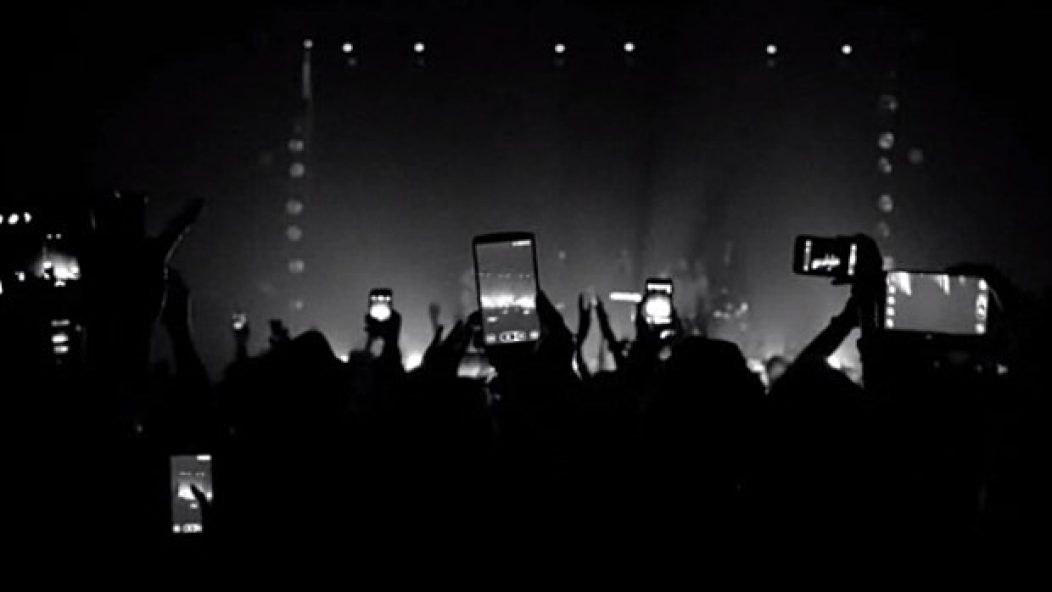
Should bands tell fans how to behave at shows?
The Atlantic recently ran an interesting article looking at the increasing tensions in the artist-audience relationship. In the piece, author Elizabeth Flock addresses the changing dynamic of needy musicians and disrespectful fans, especially in the live setting.
“Rock music has always embraced—and even represented—rebellion, rowdiness, and a robust disdain for social decorum,” she writes about the genre, which is “suffering from the distracted, smartphone-carrying audiences of the digital age.”
The article points out how social media and technology have complicated things, encouraging fans to share their experiences at shows digitally, which shifts their attention from the acts to their phones. It’s also increased fans’ demands of musicians: “A 2013 study conducted by MTV found that fans expected musicians to be ‘constantly accessible’ online and to interact directly with the people who buy their music,” the article reads.
Now, more and more musicians are calling out their fans’ behavior from the stage. The article points out artists like Neil Young, Iron Maiden, Kate Bush and the Yeah Yeah Yeahs, who have all taken public stands against cameras and cellphones.
This brings up the question: Is it okay for bands to tell their fans how to behave at shows, especially in the punk scene?
It’s not just about cellphones. Certain behaviors—like moshing, crowd surfing and stage diving—are accepted by some and frowned upon by others. Some bands, like Joyce Manor, have essentially banned stage diving from their shows.
Read more from the Atlantic below, and let us know your thoughts.
“Punk music, which has always been about the energy, perhaps knows that best. Ian MacKaye, the singer-songwriter and producer behind punk bands Fugazi and Minor Threat, says a small percentage of people do make trouble at shows but not when both the musician and fans do their part. “Ultimately, I think that bands and audiences make shows together, each bringing their necessary energies,” says MacKaye. “I've seen plenty of shows in which the bands were not particularly talented and audiences were particularly respectful, but still the experience felt transcendent.””










